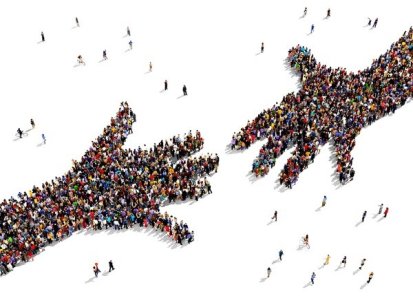Social media meltdown: Aussie pays $479 to ‘hack back’ stolen accounts, exposes online vulnerability!
- Replies 6
In an age where our digital lives are almost as significant as our physical ones, the security of our online presence has become paramount.
For many Australians, particularly those who have embraced social media as a way to stay connected with family and friends, the thought of losing access to their accounts is distressing.
But for some, the loss is more than just an inconvenience—it's a heart-wrenching ordeal that has led to desperate measures.
Sydney resident Annie recently found herself at the mercy of cybercriminals when her social media accounts were compromised.
The hackers swiftly took control, locking her out ‘within seconds’. The emotional value of these accounts was immense for Annie, as they contained irreplaceable messages from loved ones who had passed away.
It was this tragic reason that compelled her to pay a hefty sum of $479 to SafetyNet Cyber Security, a Brisbane-based company, to help her ‘hack back’ her stolen accounts.

The demand for such recovery services has skyrocketed.
‘We receive upward of 100 enquiries a week from people who have been hacked on Facebook or Instagram. It’s really becoming a problem,’ cybersecurity expert Nick Guy shared.
Annie described how the hackers gained access to her accounts and emphasised its significance to her.
‘The main thing for me was that I had messages from loved ones that had passed away on that account. Those things you can’t get back,’ she lamented.
The scam that ensnared Annie began innocuously enough with a message from a friend about supporting a new dance clothing line.
They sent her a link and suggested she might need to log in again because the clothing website was experiencing technical issues.
‘That was my first red flag, but when I clicked the link, it looked like a normal login Instagram page and didn’t look dodgy,’ Annie recalled.
Annie said she entered her login information and was locked out of her account ‘within seconds’.
‘I tried logging back in, but they had attached their mobile number to the 2FA, the two-step authentication, and I knew immediately what had happened,’ she narrated.
According to Mr Guy, SafetyNet Cyber Security employs ‘a number of methods’—undisclosed for intellectual property reasons—to reclaim social media accounts.
‘Often, we find ourselves in situations where we are hacking back and forth until we can lock them out. These methods have been refined over time and experience,’ he explained.
After a tense and stressful process, Annie was able to regain control of her Facebook account in a week and her Instagram after about a month.
‘It wasn’t until a few days ago that we had a breakthrough,’ she shared.
‘I finally got an email from Instagram with a 24-hour link…basically, you have one minute to do seven different things to lock the hacker out. So it is very stressful.’
Kim mentioned that she permitted SafetyNet Cyber Security to access her computer.
They promptly changed her password, adjusted some codes, removed the hacker’s devices from her accounts, and linked her actual mobile number to the two-factor authentication to remove the hacker.
‘When you are hacking the hacker, you want to feel some sort of safety and trust in the person who is doing this, and I definitely don’t think I could have done it on my own. It was way too stressful and overwhelming,’ Annie said.
The experience was a stark reminder of the sophistication of online scams, which are often difficult to detect.
Australians collectively lost $2.7 billion to scams last year, with phishing scams, which involve fraudsters deceiving individuals into divulging personal information, causing $137.4 million in losses.
According to Mr Guy, online scams were becoming ‘increasingly sophisticated’ and were often ‘tricky to spot’.
Similar to Annie’s situation, hackers frequently entice individuals to click on fraudulent login links and input their social media or email credentials.
‘These criminal gangs typically come from West Africa or South east Asia, and they make a phenomenal amount of money by scamming victims,’ he explained.
Hackers can also gain access to accounts through various means, including exploiting data breaches that reveal email and password combinations.
In Annie’s situation, she mentioned that the hacker mimicked her friend's tone so convincingly that she initially didn't realise anything was wrong.
‘I thought I knew the signs of what to look for when someone is trying to hack or scam you,’ she remarked.
‘Usually, they are rushing you to do something, there are spelling errors, or there is a standard copy-and-paste message they send to everyone.’
‘But the tone of voice is what really caught me off guard. This hacker had taken the time to read our messages to genuinely sound like her, so that’s the really scary part,’ Annie added.
Once hackers gain access to your social media account, Mr Guy explained that they frequently alter the recovery email and phone number and enable two-factor authentication using these new details.
Subsequently, they begin targeting the social media contacts of the compromised individual.
‘They will block the real owner of the account, go through messenger and run an appropriate scam based on the demographics of their friends,’ he explained.
‘If hackers have gotten access to emails, things get much more serious depending on what information has been sent over that email platform.’
Guy noted that identity thieves typically obtain sensitive information such as loan applications, mortgage details, bank card numbers, passports, and driver's licences.
He advised individuals who have been hacked to seek professional assistance without delay.
The emotional and financial toll of falling victim to hackers was vividly illustrated in Annie’s case.
Her desperate response underscores the growing threat and confusion individuals face when their online security is compromised.
In light of such challenges, tech experts offer crucial advice on reclaiming and securing your social media accounts, empowering users to regain control and prevent future breaches.
 Have you or someone you know been affected by a similar scheme? What do you advise others on how to safeguard themselves against these fraudsters? We invite you to share your stories and insights in the comments below.
Have you or someone you know been affected by a similar scheme? What do you advise others on how to safeguard themselves against these fraudsters? We invite you to share your stories and insights in the comments below.
For many Australians, particularly those who have embraced social media as a way to stay connected with family and friends, the thought of losing access to their accounts is distressing.
But for some, the loss is more than just an inconvenience—it's a heart-wrenching ordeal that has led to desperate measures.
Sydney resident Annie recently found herself at the mercy of cybercriminals when her social media accounts were compromised.
The hackers swiftly took control, locking her out ‘within seconds’. The emotional value of these accounts was immense for Annie, as they contained irreplaceable messages from loved ones who had passed away.
It was this tragic reason that compelled her to pay a hefty sum of $479 to SafetyNet Cyber Security, a Brisbane-based company, to help her ‘hack back’ her stolen accounts.

Australians turn to firms like SafetyNet Cyber Security to recover hacked social media accounts, often paying substantial fees for assistance. Credit: Facebook / SafetyNet Cyber Security
The demand for such recovery services has skyrocketed.
‘We receive upward of 100 enquiries a week from people who have been hacked on Facebook or Instagram. It’s really becoming a problem,’ cybersecurity expert Nick Guy shared.
Annie described how the hackers gained access to her accounts and emphasised its significance to her.
‘The main thing for me was that I had messages from loved ones that had passed away on that account. Those things you can’t get back,’ she lamented.
The scam that ensnared Annie began innocuously enough with a message from a friend about supporting a new dance clothing line.
They sent her a link and suggested she might need to log in again because the clothing website was experiencing technical issues.
‘That was my first red flag, but when I clicked the link, it looked like a normal login Instagram page and didn’t look dodgy,’ Annie recalled.
Annie said she entered her login information and was locked out of her account ‘within seconds’.
‘I tried logging back in, but they had attached their mobile number to the 2FA, the two-step authentication, and I knew immediately what had happened,’ she narrated.
According to Mr Guy, SafetyNet Cyber Security employs ‘a number of methods’—undisclosed for intellectual property reasons—to reclaim social media accounts.
‘Often, we find ourselves in situations where we are hacking back and forth until we can lock them out. These methods have been refined over time and experience,’ he explained.
After a tense and stressful process, Annie was able to regain control of her Facebook account in a week and her Instagram after about a month.
‘It wasn’t until a few days ago that we had a breakthrough,’ she shared.
‘I finally got an email from Instagram with a 24-hour link…basically, you have one minute to do seven different things to lock the hacker out. So it is very stressful.’
Kim mentioned that she permitted SafetyNet Cyber Security to access her computer.
They promptly changed her password, adjusted some codes, removed the hacker’s devices from her accounts, and linked her actual mobile number to the two-factor authentication to remove the hacker.
‘When you are hacking the hacker, you want to feel some sort of safety and trust in the person who is doing this, and I definitely don’t think I could have done it on my own. It was way too stressful and overwhelming,’ Annie said.
The experience was a stark reminder of the sophistication of online scams, which are often difficult to detect.
Australians collectively lost $2.7 billion to scams last year, with phishing scams, which involve fraudsters deceiving individuals into divulging personal information, causing $137.4 million in losses.
According to Mr Guy, online scams were becoming ‘increasingly sophisticated’ and were often ‘tricky to spot’.
Similar to Annie’s situation, hackers frequently entice individuals to click on fraudulent login links and input their social media or email credentials.
‘These criminal gangs typically come from West Africa or South east Asia, and they make a phenomenal amount of money by scamming victims,’ he explained.
Hackers can also gain access to accounts through various means, including exploiting data breaches that reveal email and password combinations.
In Annie’s situation, she mentioned that the hacker mimicked her friend's tone so convincingly that she initially didn't realise anything was wrong.
‘I thought I knew the signs of what to look for when someone is trying to hack or scam you,’ she remarked.
‘Usually, they are rushing you to do something, there are spelling errors, or there is a standard copy-and-paste message they send to everyone.’
‘But the tone of voice is what really caught me off guard. This hacker had taken the time to read our messages to genuinely sound like her, so that’s the really scary part,’ Annie added.
Once hackers gain access to your social media account, Mr Guy explained that they frequently alter the recovery email and phone number and enable two-factor authentication using these new details.
Subsequently, they begin targeting the social media contacts of the compromised individual.
‘They will block the real owner of the account, go through messenger and run an appropriate scam based on the demographics of their friends,’ he explained.
‘If hackers have gotten access to emails, things get much more serious depending on what information has been sent over that email platform.’
Guy noted that identity thieves typically obtain sensitive information such as loan applications, mortgage details, bank card numbers, passports, and driver's licences.
He advised individuals who have been hacked to seek professional assistance without delay.
The emotional and financial toll of falling victim to hackers was vividly illustrated in Annie’s case.
Her desperate response underscores the growing threat and confusion individuals face when their online security is compromised.
In light of such challenges, tech experts offer crucial advice on reclaiming and securing your social media accounts, empowering users to regain control and prevent future breaches.
Key Takeaways
- Australians are seeking professional help from companies like SafetyNet Cyber Security to recover their hacked social media accounts, often paying significant sums for these services.
- The increase in sophisticated online scams has led to a surge in demand for cyber security assistance, with SafetyNet Cyber Security reporting over 100 enquiries a week from victims of social media hacking.
- Victims, such as Sydney woman Annie Kim, value their social media accounts not just for social connections but also for sentimental reasons, such as messages from deceased loved ones.
- Cybersecurity experts advised that those who have been hacked should contact professionals immediately, as scammers often use a variety of tricks to gain access to personal information and may leverage social media accounts to target friends and contacts of the hacked individual.














